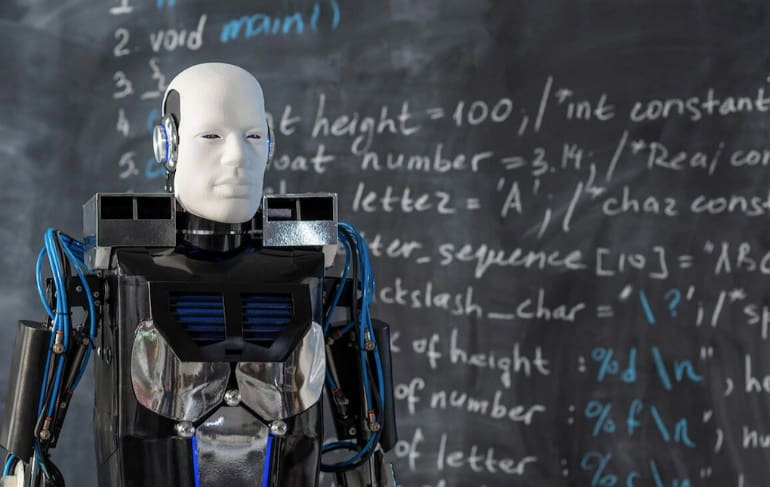Originally published on AZ Big Media.
A teacher’s response to learning about artificial intelligence is comparable to a child’s face after eating ice cream, bulging eyes and happy smiles. “We’re like the happy cheerleaders for AI,” said Janel White-Taylor, clinical professor at Mary Lou Fulton Teachers College.
From K–12 classrooms to university lecture halls, artificial intelligence continues to be tested and Arizona State University is taking a lead in discovering the untold world of AI.
At Mary Lou Fulton Teachers College, instructors are formulating a training program that can prepare students who are going to be teachers in a few years to use and understand the technology. In order to teach the students that artificial intelligence is still learning new algorithms, the goal is to identify what it isn’t accomplishing, Jennifer Werner Instructional Designer Senior at Mary Lou Fulton Teachers College explained.
Taylor adds that ASU faculty are exploring new methods to incorporate AI into courses, particularly one on problem-solving using digital technology applications, in which students can learn how to write a script or create a piece of artwork using intelligence.
Arizona State University Preparatory Academy partnered with Khan World School, a virtual learning platform teaching grades 6 through 12 virtually at the charter school. The instructors who are apart of this learning environment refer to themselves as guides rather than teachers.
“Their (guides) in a digital environment and are actually facilitating the learning,” Rachna Mathur, the STEM strategist for Arizona State University Preparatory Academy said.
The goal is for instructors to include AI in their classes and begin modifying their lesson plans. Teachers claim that rather than worrying about students cheating, they should be worried about whether their assignments are motivating them.
Taylor gave an illustration of how teachers might revamp their lesson ideas. Instead of merely having a student summarize an article, educate them to request the summary from artificial intelligence. Then, let the student evaluate if the summary was accurate.
“What educators are increasingly seeing is that it is an incredible teaching partner..it can help foster the creative process,” Punya Mishra the Associate Dean of scholarship and innovation and professor at Mary Lou Fulton teachers college said.
AI has advanced to an extent where it is now the new kid on the block within certain workplaces.
Are educators worried about losing their jobs?
Professors expressed that students will always need a human connection in order to fully learn and there is a possibility that artificial intelligence might have a bigger role in lessons.
“A large reason of why we go to school is to learn how to engage and interact with people, learn views, it’s not just about learning math and chemistry,” said Mirsha.
The accepted norm today in education is for kids to learn how to use computers “before” they learn how to compose sentences.
“It’s more of a new relationship with this learning system…its a different type of thinking,” said Mathur.
It can also be a era of going back to basics and having children read books out loud and having a designated writing time, “its all about strategy,” said Taylor.

